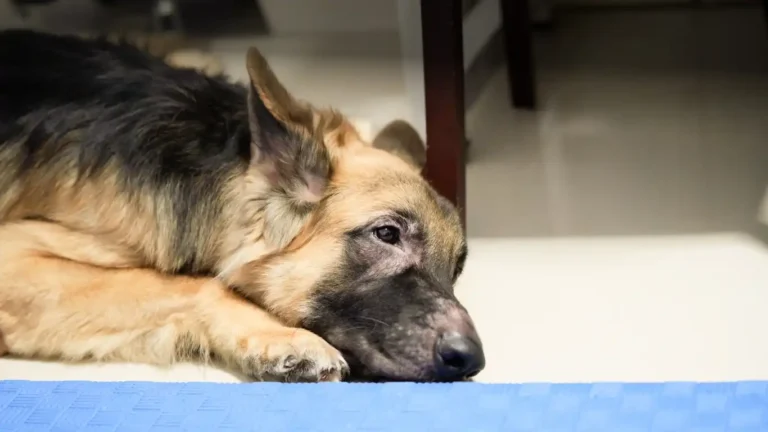How to Deal with Chronic Vomiting in Puppies: Essential Tips
As someone who has spent a good chunk of their career as a Veterinary Assistant with a nutrition focus, I’ve seen a fair share of messy puppy situations—like, really messy. One of the most common (and distressing) issues I get questions about is how to deal with chronic vomiting in puppies. I get it—it’s nerve-wracking when your pup keeps throwing up and you’re stuck wondering if it’s just a little stomach bug or something more serious. So, let’s dive into what could be causing all this regurgitated chaos and how to help your fur baby feel better, based on real-life, hands-on experience.
What’s Considered Chronic Vomiting in Puppies?

First off, let’s clear up what “chronic” means here. It’s not just one or two random pukes after eating too fast or sneaking a bite of something gross (yes, I’m looking at you, trash bandit pups). Chronic vomiting means your puppy is throwing up repeatedly—often several times a week, or even daily—for more than a few days. That’s your cue to stop waiting it out and start investigating.
Possible Causes of Chronic Vomiting

1. Food Sensitivities or Allergies
This one hits close to home because I’ve worked with countless pups who just couldn’t tolerate certain ingredients. You’d be surprised how often a puppy’s vomiting is linked to what’s in their bowl. Grains, chicken, beef, dairy—any of these could be triggering inflammation in the gut.
Pro Tip: Try switching to a limited ingredient diet or a novel protein (like duck or venison). Keep an eye on ingredient lists and avoid filler-heavy kibble.
2. Parasites
This is a biggie. Puppies are like toddlers—everything goes in the mouth. If they’ve picked up worms or protozoa like Giardia, vomiting may be one of the first signs. I always recommend bringing a stool sample to your vet if vomiting is paired with diarrhea or a “pot-bellied” look.
3. Gastrointestinal Infections
Sometimes it’s viral, sometimes bacterial. Either way, infections like parvo (which is very serious) or bacterial overgrowth can wreak havoc on your puppy’s digestive system. These aren’t things you can fix at home—your vet will likely need to run tests and start treatment quickly.
4. Eating Things They Shouldn’t
You wouldn’t believe the stuff I’ve seen come out of puppies. Socks, toys, mulch, even rocks. If there’s an obstruction in the gut, vomiting is the body’s way of trying to say, “Something’s not right here.” This kind of issue often requires imaging and sometimes surgery.
When to Worry: Red Flags You Shouldn’t Ignore

Look, I know sometimes it’s tempting to Google your way through every puppy issue. But there are some symptoms that just scream “Get to the vet now.” These include:
- Vomiting more than 2–3 times in 24 hours
- Blood in vomit (bright red or coffee-ground looking)
- Severe lethargy or weakness
- Refusal to eat or drink for more than a day
- Dehydration (dry gums, sunken eyes, skin that doesn’t snap back)
Trust me, as someone who’s had to help calm down panicked puppy parents in exam rooms, it’s always better to be safe and have a vet rule out anything serious. You’re not overreacting—you’re being responsible.
How Nutrition Plays a Major Role
This is where my nutrition background really comes in handy. Diet is crucial when managing chronic vomiting in puppies. The gut needs time to heal, and the right food can make a huge difference. I’ve helped transition dozens of puppies onto gentle, digestible diets that gave their stomachs a break and let them bounce back fast.
- Look for diets labeled as “GI” or “digestive support.”
- Opt for bland, simple meals—think boiled chicken and rice short-term, or prescription diets long-term.
- Consider probiotics to support a healthy microbiome (ask your vet first).
One client’s puppy was vomiting nearly every day until we figured out he had a sensitivity to chicken-based kibble. After switching to a lamb and rice formula, it was like night and day. No meds, just a diet change. That’s the power of nutritional awareness.
Supporting Recovery at Home

So you’ve visited the vet, ruled out anything life-threatening, and maybe started a new food plan. Now what? This is where the real TLC comes in. Helping a puppy recover from chronic vomiting takes a bit of patience, consistency, and a whole lot of love (plus some extra paper towels, let’s be real).
Keep Mealtimes Predictable
I always tell clients that puppies thrive on routine. Try to feed smaller, more frequent meals—like three to four a day—instead of two big ones. It’s easier on their stomach and helps reduce the risk of vomiting from an overly full belly.
Hydration is Key
One of the sneaky dangers with vomiting is dehydration. If your pup’s been throwing up a lot, make sure they’re getting enough fluids. You can even add water or low-sodium bone broth to their meals. In my experience, puppies are more likely to lap up broth than plain water when they’re feeling “meh.”
Rest Without Isolation
Your puppy still needs rest, but they also need to feel safe. Set up a cozy space near you where they can relax without being overstimulated. When I cared for a foster pup with chronic GI issues, just having her close by while I worked helped her settle. She didn’t want to be alone—and honestly, I didn’t either.
Supplements That May Help (With Vet Approval!)

I’m a big believer in holistic support when appropriate—but always in partnership with your vet. Some supplements can really make a difference, especially for pups with sensitive tummies or ongoing digestive inflammation.
- Probiotics: These help balance the gut microbiome and can reduce inflammation. I’ve seen noticeable improvement in vomiting frequency after introducing the right probiotic blend.
- Digestive Enzymes: Especially helpful if your pup has trouble breaking down certain proteins or fats. It can reduce strain on their GI tract.
- Slippery Elm or Marshmallow Root: These natural supplements can soothe the digestive lining. Again—only under your vet’s guidance.
One of the most rewarding cases I worked on was a Labrador puppy named Marley who had persistent vomiting no matter what food we tried. It wasn’t until we introduced a vet-approved probiotic and a hydrolyzed protein diet that things turned around. The improvement was dramatic—and her tail finally wagged during mealtime again.
Training Adjustments During Recovery

Training a vomiting puppy can be… complicated. Their energy levels may dip, and if they’re not feeling well, even simple cues like “sit” or “come” can become a chore. The key is adjusting your expectations without abandoning structure entirely.
Go Easy On Treats
This one’s tough, especially when food is your go-to training motivator. Stick to their main food as treats during training or use vet-recommended low-fat options. I once had to train a puppy on boiled sweet potato pieces because even the “hypoallergenic” treats were too much. It worked!
Focus on Calm, Bonding Activities
When your pup isn’t up for high-energy training, that’s okay. Use this time for low-stress enrichment. Snuffle mats, gentle brushing sessions, or simple name-recognition games can keep them mentally stimulated without taxing their body.
Creating a Vomit Log (Yes, Really!)
This might sound excessive, but a vomit log has been a game-changer for me—and for many pet parents I’ve worked with. When a puppy is vomiting regularly, it’s hard to track patterns off memory alone. Documenting frequency, appearance, time of day, what they ate before, and any unusual behaviors gives you and your vet valuable data.
Here’s what I usually recommend jotting down:
- Date and time of each episode
- Description of vomit (color, consistency, presence of food or bile)
- Last meal/treat given and when
- Energy levels before and after
- Any meds or supplements taken that day
I had one client who realized their pup’s vomiting always happened after late-night snacks. Turns out, their digestive system needed a longer overnight break. We adjusted feeding times—and boom, no more 3 a.m. puke fests.
Trusting Your Instincts and Advocating for Your Puppy
At the end of the day, you know your puppy better than anyone else. If something feels off—even if tests are “normal”—don’t hesitate to speak up. I’ve seen dogs go months undiagnosed because early signs were brushed off. Your observations, your gut feeling, and your consistency in care are all part of your puppy’s wellness team.
Be their advocate. Keep asking questions. Keep tracking patterns. And most of all, keep loving them through the messy moments. Chronic vomiting in puppies isn’t just a medical issue—it’s an emotional rollercoaster, and your calm, steady presence makes all the difference.
When to Seek Specialist Care and Advanced Diagnostics

Sometimes, despite your best efforts and multiple vet visits, chronic vomiting just won’t quit. At that point, it might be time to consider specialist care. Referral to a veterinary internal medicine specialist or a board-certified veterinary nutritionist can provide more targeted diagnostics and treatment plans.
Advanced testing may include:
- Endoscopy: A minimally invasive procedure that allows vets to look inside your puppy’s stomach and intestines to check for ulcers, foreign bodies, or inflammation.
- Ultrasound: To examine abdominal organs in detail and identify possible obstructions, tumors, or organ abnormalities.
- Biopsy: Sometimes tissue samples from the gut lining are needed to diagnose conditions like inflammatory bowel disease (IBD) or cancer.
- Blood panels and specific tests: To evaluate organ function, electrolyte imbalances, and rule out systemic diseases.
From personal experience, I recall a puppy named Bella whose vomiting was so persistent that her family went the specialist route. Through endoscopy and biopsy, she was diagnosed with IBD, which required a tailored diet and medication. It wasn’t easy, but the specialist’s input made all the difference. Bella’s vomiting drastically reduced, and she regained her playful puppy spirit.
Long-Term Management: What to Expect

For some puppies, chronic vomiting may be a one-time ordeal. For others, it’s an ongoing challenge that requires long-term management. If your puppy falls into the latter group, setting realistic expectations is key—for you and your furry friend.
Long-term management often involves:
- Strict dietary control: Many dogs do well on prescription or specially formulated diets that reduce gut inflammation and support digestion.
- Medication: Depending on the cause, anti-nausea drugs, acid reducers, or immune-modulating medications might be necessary.
- Regular veterinary check-ups: Ongoing monitoring helps catch flare-ups early and adjust treatment as needed.
- Environmental control: Avoiding access to toxins, foreign objects, and stressors that might worsen symptoms.
While it can feel overwhelming, remember that puppies are remarkably resilient. I’ve seen many dogs thrive with a little extra care and thoughtful management. The key is staying proactive and working closely with your veterinary team.
Final Thoughts on How to Deal with Chronic Vomiting in Puppies
Dealing with chronic vomiting in puppies is definitely no walk in the park. But with patience, knowledge, and the right support system, it’s manageable—and you can help your puppy lead a happy, comfortable life.
Whether it’s tweaking their diet, managing medications, or knowing when to push for more testing, your role as a dedicated pet parent is invaluable. In all my years as a Veterinary Assistant focusing on nutrition, I’ve learned that no two puppies are exactly alike. What works wonders for one may not for another, so a customized approach is essential.
Above all, trust your instincts, seek veterinary advice early, and don’t hesitate to ask for specialist input when things get complicated. Your puppy depends on you, and every step you take towards understanding and managing their condition makes a huge difference.
References
Disclaimer
This article is intended for informational purposes only and should not replace professional veterinary advice. If your puppy is experiencing chronic vomiting or any other health issues, please consult a licensed veterinarian promptly. Early diagnosis and treatment are crucial to your pet’s health and wellbeing.





